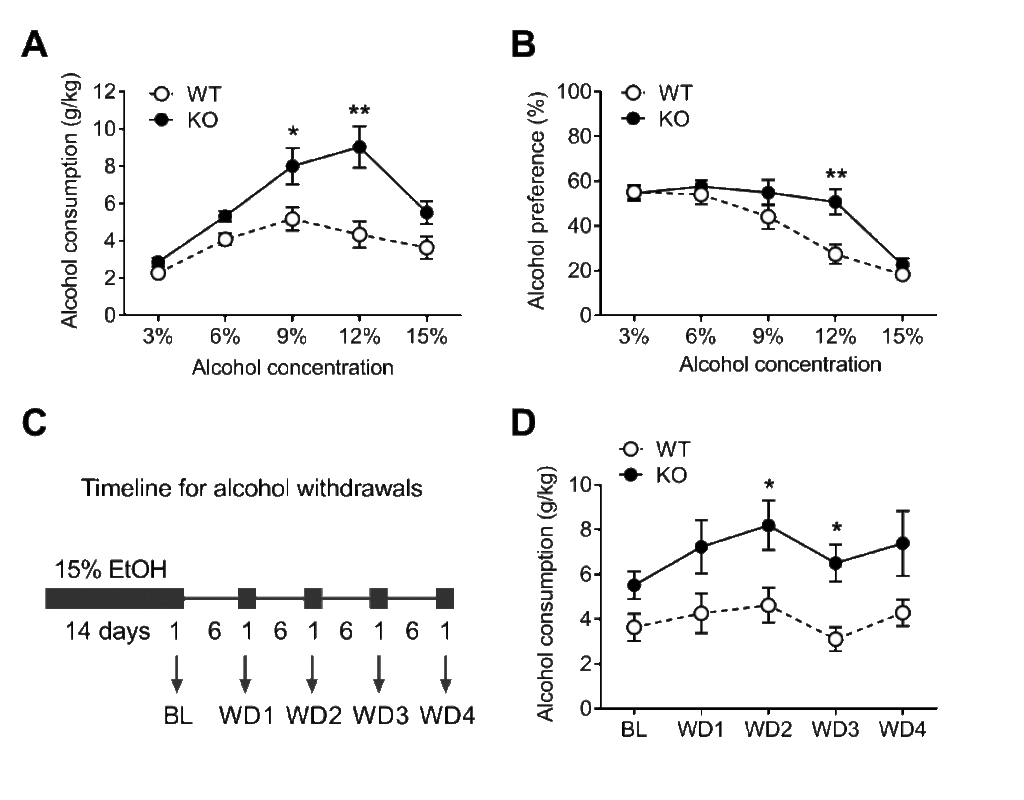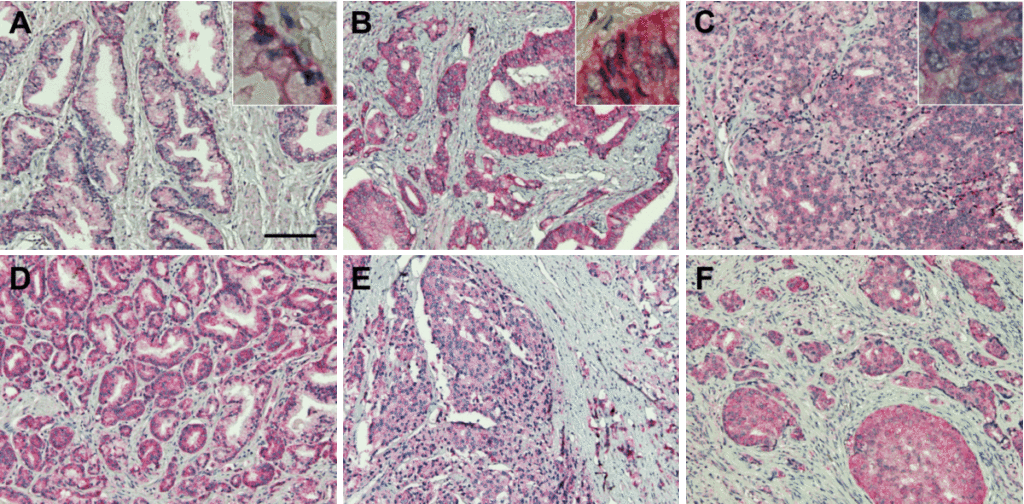Our research interest is focused on the following two projects.
Project 1: Effects of brain pH on alcohol consumption
We study pH regulation in the brain and its effects on neuroprotection, brain damage, and addiction. The project is currently focused on pH effect on alcohol addiction and consumption. The project is based on our animal studies that knockout mice without the sodium bicarbonate transporter NBCn1 consume more alcohol than control mice. These knockout mice drink more alcohol as their motivation to drink is enhanced. This result indicates that pH can affect alcohol reward or alcohol modulatory properties.
Project 2: Role of sodium bicarbonate transporters in cancer cell growth and differentiation
The second project in our lab is to understand the effect of pH on cancer growth and differentiation. Cancer is developed from genetic and epigenetic changes in normal cells, and environmental and systemic stresses assist tumor initiation or aggravation. The microenvironment surrounding tumors is acidic due to increased metabolic activity, excessive CO2 production, and poor oxygenation. In normal cells, HCO3– influx has negligible effect on extracellular pH as there is a large reservoir of HCO3– in blood. In tumors, however, a blood supply is limited and the amount of HCO3– surrounding cancer cells is low, and as a result the microenvironment surrounding tumors becomes acidic. Tumor cells then undergo adaptation for survival under such conditions, in which normal cells die. This adaptation then promotes cancer cell proliferation, expansion, and even metastasis. The project focuses on the sodium bicarbonate transporters that move HCO3– into cells and compensate for intracellular acidification. Because tumor cells have extensive metabolic activity, intracellular pH is low and the sodium bicarbonate transporters are favorably activated. Thus, inhibiting these transporters pharmacologically or by knockdown is expected to reduce or delay cancer cell growth. We are interested in developing these transporters as targets that retard cancer cell growth.



Recent Comments